#biguine
Explore tagged Tumblr posts
Text
1948
#Rico's Créole Band#Afro-Cuban#Latin#Cuban#Bandcamp#30's#1930s#Biguine#Bolero#Créole#Rumba#Paris#my file#music
37 notes
·
View notes
Text

CHUC MUNG NAM MOI ! HAPPY LUNAR NEW YEAR ! ~
The second new year day of the year for us East Asians is around the corner aka the second start if the first one was a fail lol.
I'm really proud of this nail art, I feel like the last one I did for lunar new year was not that great.
This year will be the snake year and apparently it will be a good year for the sign of the rat (me) according to my mom lol. So let's see !
Chuc mung nam moi to those who celebrate !
Polishes I used :
OPI : Big Apple Red
Biguine : Precious Or
Essie : Take Controller
Hema : Sunny Flowers
White & Black Polishes
Blog | Twitter | Pinterest | Facebook
#nail#nail polish#nails#nail art#nailsnails#opi#biguine#essie#essiepolish#essie nail color#essie nail polish#hema#red#gold#green#yellow#white#black#glitter#year of the snake#chinese new year#lantern#flowers#lucky cat#lunar new year#manicure#notd#nailpornography
7 notes
·
View notes
Text
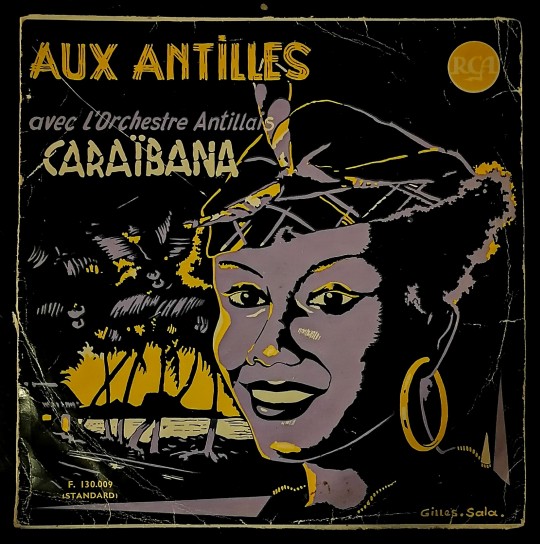
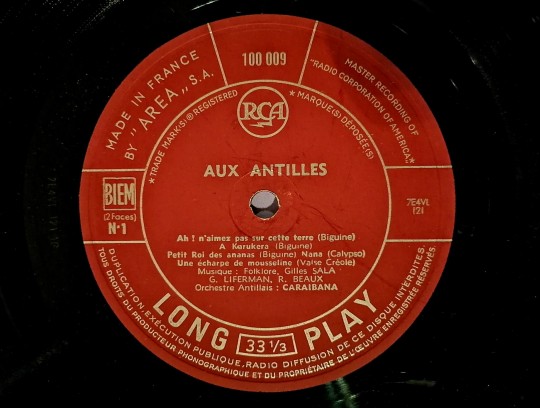
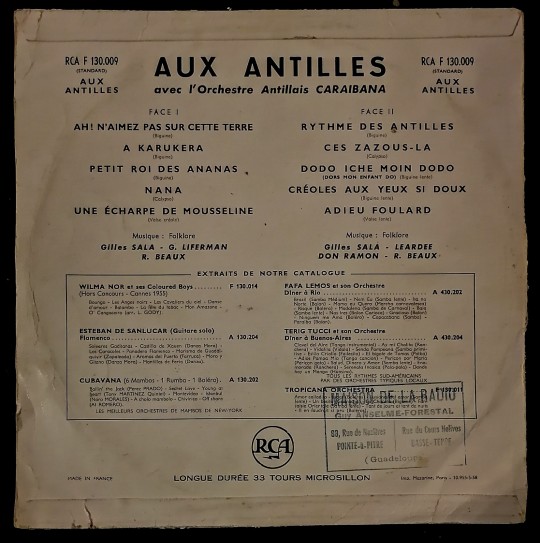
Orchestre Antillais CARAÏBANA
"Aux Antilles"
(10". RCA. 1955) [FR]
youtube
#caraibana#1955#gilles sala#france#antilles#west indies#biguine#folk#traditional#calypso#10“s#records#Youtube
0 notes
Text
0 notes
Audio
1960
Found this charming track in @luvmesumus's audio archive. What appealed to me was her powerful, exprressive vocals and the warm rhythms.
Unfortunately, I couldn't find any black and white photos of her to add to my collection of female vocalists over @vintageblackandwhiteportraits.
If anyone knows where I might find some, please let me know. Thanks
Lola Martin - Z'Affè Co Ida
24 notes
·
View notes
Text
youtube
Bon Soir 🕺🎸🍹💃
La Compagnie Créole 🎶 Ma première biguine partie
#music vidéo#la compagnie créole#vidéo clip#ma première biguine partie#antilles#clip music video#youtube#bon soir#fidjie fidjie
14 notes
·
View notes
Text
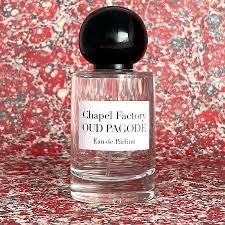
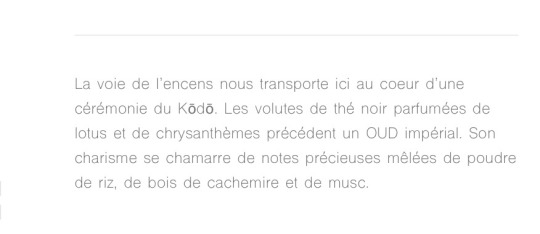

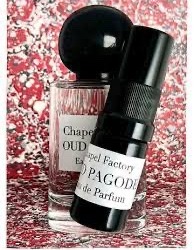
Coup de cœur pour un parfum ! Ça faisait longtemps !
J’ai commandé quelques échantillons généreux sur la boutique de la maison Jardins d’écrivains (ô surprise, ça m’attirait !), et dans cette maison de parfumerie fondée par Anaïs Biguine, la branche qui m’intéressait davantage était celle nommée Chapel Factory, pour son côté mystique et l’échantillon de L’eau d’épine que j’avais pu sentir grâce à la box de Au Parfum (et qui est vraiment original et beau). Je trouve cette marque extrêmement cohérente et attirante : une sorte de recherche autour de l’ingrédient phare et central, l’encens. Que j’ai toujours aimé. Il se décline ici en plusieurs fragrances originales et assez radicales. La maison propose des bougies, des compositions à brûler, comme pour une cérémonie sacrée mystérieuse.
Ermit Coat est le plus osé : il sent la fumée, le brûlé, il est austère comme il se doit, et vieillit bien sûr ma main. Il évoque vaguement Serge Noire de Lutens que j’ai tant aimé avant qu’il ne devienne un parfum inabordable, mais il n’en a pas la richesse.
Heresy est très intéressant, avec des notes poivrées, et un soupçon de vétiver.
Baptisma est plus souriant, avec pourtant trop de verveine et un côté un peu synthétique qui m’a déplu.
J’ai été très séduite par Pura Lux, sans doute grâce au jasmin et au musc, je l’ai en effet trouvé lumineux, assez addictif sur mon biceps droit.
Mais le coup de foudre, je l’ai eu sur mon dernier essai, biceps gauche, le dernier né de la marque : Oud Pagode. Les ingrédients sont notés ci-dessus. Ceux que je sens réellement sont le thé noir, la poudre de riz, le musc et la fumée. Je sens bien du bois, mais que ce soit de l’oud ou du bois de cachemire, je veux bien le croire, sans les identifier. En tous cas, ce que j’aime, c’est que cet oud, normalement associé en parfumerie à de l’opulence orientale est ici subtil et tiré vers le zen : il est doux comme une caresse, accompagné de notes qui le situent en parfait équilibre entre amertume (celle du thé) et sucre (le riz ? Le bois ?), honnêtement je ne sais pas ce qui en fait la magie, mais c’est un parfum complètement addictif, qui a même quelque chose de régressif pour moi, comme si il me rappelait quelque chose de l’enfance, quelque chose d’évident, de déjà su. Un haïku ? Ce serait facile comme image ; et pourtant, il y a un peu de ça, comme une fausse simplicité, ce n’est pas un parfum qui déploie des milliards de facettes, il est assez linéaire, mais il active en mon cerveau les bonnes touches. J’ai juste envie de plonger mon nez dedans et de me rouler en boule dans des draps blancs, dans un silence peut-être juste troublé par une cloche lointaine. Je ne sais pas si c’est un effet souhaitable, mais en ces temps perturbés, peut-on m’en vouloir de souhaiter la paix, au moins intérieure ?
4 notes
·
View notes
Text
LITERARY: Kutsero

Kapag tumatakbo ang kabayo,
Tinatakpan ang gilid ng mga mata nito
Para hindi bumaling sa iba ang tingin
At kutsero’y ‘di biguin.
Ngunit tama ba na nakabase lamang sa
kutsero ang kalesa?
Na tila nakakulong sa nakatakda nitong ruta,
O dapat ba’y malaya siyang makatakbo
Ayon sa hatak at hila ng kaniyang puso?
Pagkatapos ng lahat,
Ang tao ay tao,
At ang kabayo ay kabayo,
Kahit na parehong kontrolado
Ng mga sarili nilang kutsero.
Ikaw, sinong kutsero mo?
4 notes
·
View notes
Video
💥💥

youtube
Alexandre Stellio Et Son Orch Créole ’“Au Bar Des Iles” Hot Haitian Jazz 1960…
6 notes
·
View notes
Text
J'ai mal à la tête...
Jusqu'à ces jours derniers, en des temps où ''tout était mieux, avant'' (l faut bien noter que, au fur et à mesure que le tempus fugit de plus en plus irreparabile, tout devient de plus en plus... ''mieux, avant'' !), c'était simple : il me suffisait d'avaler un comprimé de Doliprane... et le tour était joué : moins de dix minutes plus tard, on était prêt à danser la biguine... ou autre chose, à votre choix. Mais c'était trop simple --''C'est comme tout : tout fout l'camp'', dirait ma chère Madame Michu ! Aujourd'hui, n'importe quel ''pseudo-mozart de la finance''(auto-proclamé) tuerait ses ''Parent 1'' et ''Parent 2'' pour 3 fois rien (13 milliards, tout de même, au prix de la Doliprane ''en gros'' !).
A l'issue sans issue (vous verrez : le grand nettoyage par le vide, en France ! Je prends les paris !) du psychodrame dont nous croyons avoir vu la fin, on commence à mieux comprendre ce qui ne s'est pas passé. Si vous n'êtes pas d'accord avec mon analyse, merci d'écrire à tumblr, mon fournisseur d'espace, qui transmettra. Ou pas.En 2 ou 3 mille mots, c'est l'histoire ratée d'un anti-douleur fabriqué en France, c'est-à-dire là où on en a le plus besoin --et en tout cas, plus besoin qu'ailleurs, compte tenu de la nullité crasse de notre personnel politique et de la monstruosité dévorante de nos ponctions fiscales-- que Sanofi, sans doute fatigué que cette authentique machine à cash fasse ''ding-ding'' sans cesse depuis des décennies, a décidé de la vendre à des américains, soigneusement choisis parmi les plus inhumains, les plus radins, les plus insensibles et les plus anthropophages qui puissent être : un ''Fonds de pension'', le prototype du gouffre sans fond plein de fonds, si j'ose.
En fait, c'est pas ça. Ou ''pas exactement ça''. En revenant sur les épisodes précédents et sur les épisodes inconnus, tout en le vendant, les français en garderaient le contrôle, qui deviendrait ipso facto un non-contrôle, étant entendu que les ricains, pas fous, en deviendraient les seuls propriétaires, au ''droit de regard'' près des français, et à l'Etat (qui vient mettre son grain de sel après la bataille, comme les gendarmes de la chanson), d'exercer un droit de veto à la seule condition, bien spécifiée, que ces mêmes ricains seraient libres de faire ce qu'ils veulent, comme ils veulent, quand ils veulent.
La seule condition, c'est que les dits ricains s'engagent à ne pas léser ce qu'ils auront compris que les français considèrent comme des droits non précisés... mais à ne pas léser, bien évidemment ! La formule est si belle que je l'ai recopiée sans en modifier un seul mot, à votre intention : ''Les (américains) auront le droit d'agir comme bon leur semble dans la limite de la préservation de l'autonomie décisionnelle des français à l'intérieur d'un périmètre contrôlé par les américains dans le respect des éventuelles décisions des français concernant de possibles développements envisageables à condition ''bien entendu --sic !'' de maintenir le niveau minimum de valeur ajoutée produit pendant cinq ans''...
C'est-y-pas beau, ça, Madame ? J'imagine les négociateurs US, habitués à rencontrer des gens sérieux, échangeant force clins d’œil et se retenant à quatre pour ne pas pouffer. Je dois dire que, mis à part les deux membres de phrase ''bien entendu'' et ''cinq années'', je n'ai pas compris un traître mot de ce baragouin à la fois illisible et incompréhensible ! Et nos énarques de pavoiser et de cocoriquer ! Ah les cons... I Et il est désormais inutile d'espérer qu'un bon vieux cachet de Doliprane ait la plus petite chance de transformer cette défaite humiliante et victoire éclatante. Et pourtant... c'est ce qu'ils font, et faisant appel à leur vieille technique émoussée : ''Circulez... Y a rien à voir.''. Adieu, veaux, vaches, cochon, couvée, cachets, Doliprane... mais pas maux de tête. Ils auront réussi à assassiner ce beau et grand pays en moins de temps qu'il n'en faut pour comprendre à quel point ils sont stupides, néfastes, mortifères et... prétentieux. A nous, il nous reste les yeux pour pleurer...
H-Cl.
3 notes
·
View notes
Text
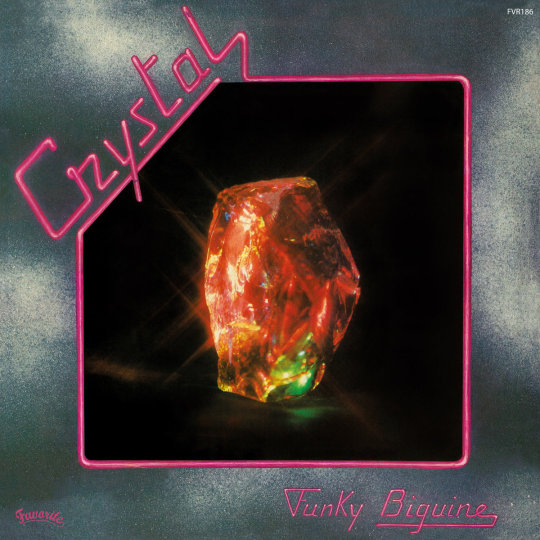
Crystal - Funky Biguine (1985)
17 notes
·
View notes
Text
1947
Rediscovering tracks by Rico's Creole Band, a Cuban band based in Paris in the 30's and 40's.
#Rico's Creole Band#Rumba#Afro-Cuban#Latin#Cuban#Biguine#Beguine#Bolero#Creole#Créole#Paris#France#1940s#40s#my file#music
11 notes
·
View notes
Note
hi, siren!! what's your favorite song, scent/perfume, texture to touch and favorite food right now/today? 🤗
Hello, darling Anon!
The song I'm obsessed with atm is actually from a soundtrack — it's the Main Theme from Succession 😅 I've listened to it...perhaps a bit too frequently these past two/three days...
I have two favourite perfumes that I kinda use as a signature scent: Sì Intense by Giorgio Armani and Flore Occulte by Jardins d'Écrivains/Anaïs Biguine. La vie est belle intesément by Lancôme is also really nice ♡
Texture to touch...hmm, I've never really thought about it... I suppose satin and silk ✨️
Favourite food atm...I'd say Nocellara olives 🫒 And salmon scream cheese bagels with spinach and lemon juice 😋
Thank you for asking, dear! 💖✨️
#anon#anon ask#asked and answered#this helped cheer me up and focus on some positive things - thank :) ✨️💖✨️
2 notes
·
View notes
Text
sa panahong gusto kong kumalma,
nariyan ang bituin.
kumikislap-kislap, nagagalak na ako'y aluin.
nariyan ang hangin.
malamig ang simoy, hindi ako nais biguin.
nariyan ang mga kuliglig.
nagmamasid, hindi ako gustong abalahin.
nariyan ang mga dahon at puno.
nakikinig, nakahandang ako'y yakapin.
nariyan ang mga dumaraan sa kalsada.
mangilan-ngilan, hinahayaan ako sa panahong gusto kong kumalma.
#nighttime#feelings#calmness#calmnight#filipino#tagalog#art#writing#poetry#aesthetic#books & libraries#poem#emotions#surrounding
4 notes
·
View notes
Text
Google Martinique - Promesse Séjours Turquoises dans un cadre paradisiaque en Martinique
1 note
·
View note
Text
Judner Rock veut vous aimer avec Motion Love
DjRock!? DjRock!? DjRock! Qui est ce DJ qui donne des envies de biguiner ? C’est Judner Rock ! ! Sous ses doigts, une platine et des mélodies qu’il vous offre ! Ce jeune musicien haïtien a tout dans son sac à dos artistique ! Graphiste, producteur, mixeur, ses doigts magiques connaissent sa platine ! Dans sa sphère artistique, il réserve d’autres surprises : chorégraphe et danseur de la compagnie…
0 notes